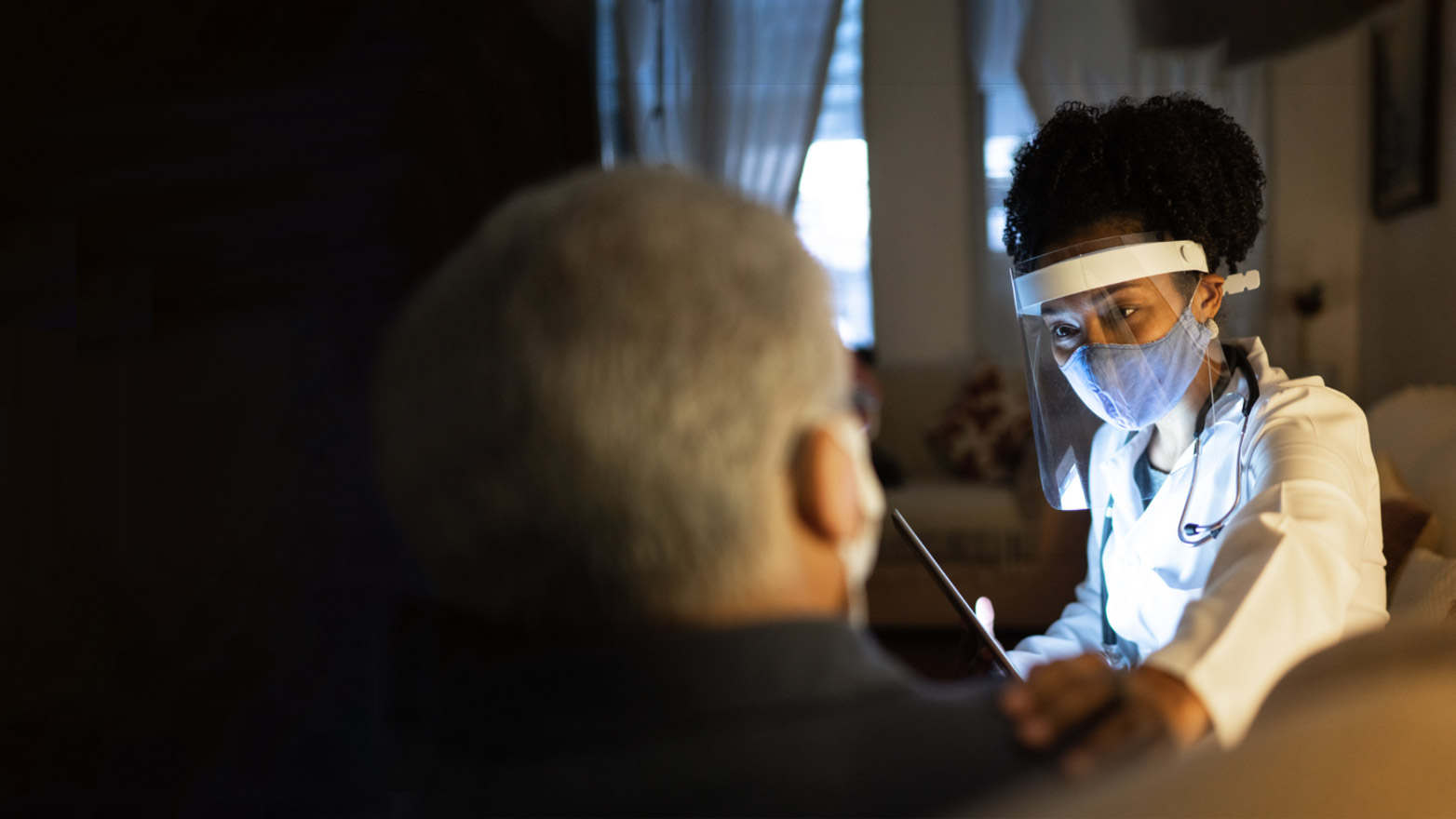Transcript
Morehouse School of Medicine is one of the four HBCUs, historically black colleges and university medical schools in the nation. It is the youngest of the four, formed in 1975 on the campus of Morehouse College. We were created to lead the creation and advancement of health equity, working with communities of color. As well as training students, we're also a research institution. When COVID-19 hit, of course, we provided healthcare to the community and the patients who were at risk, but also we did studies to show that COVID-19 was impacting Georgia and disproportionately impacting the communities of color, especially the African-American community. We were already suffering in these communities with the highest burden of chronic diseases, such as diabetes and hypertension, and then when COVID hit, that was a greater impact on communities who also have less access to care. Therefore, we had this opportunity to apply for funding with Office of Minority Health to develop the National COVID-19 Resiliency Network.
We have great working relationship [with KPMG] and we've gotten to the place now that we are developing something that's going to be impactful. KPMG has been a good partner to work with, accommodating, I really understood the model.
KPMG:
We have a mutual understanding of what the mission of Morehouse School of Medicine is. And I think by having that understanding, we were looked at as a partner who could come to the table and hit the ground running.
What's unique about our work with Morehouse is that we're applying advanced technologies and data and analytics to target populations and pair them with the services and the supports that they need. Traditional approaches to this type of thing have relied on funneling money into community-based organizations and others that have access and reach into the community. And while that's a key component of the Morehouse strategy, the technology and data and analytics is what sets it apart. KPMG was very uniquely positioned based on our extensive research over five years developing the Signals Repository. The Signals Repository is a database made up of various data points that we're getting from CDC, public health agencies, academic centers, where we're bringing all of this rich information and together where we can bring that to Morehouse School of Medicine.
Salesforce:
I think it's really important that you think about Salesforce and KPMG as two world-class companies with world-class resources at our fingertips, and we were able to leverage all those resources to build this solution. So when you think about the Morehouse data and you think about the project, what we were able to do through working with KPMG was analyze all that data and put it in a format in which people could make better informed decisions.
KPMG:
One of the main components is a user facing portal that allows underserved communities have access to a flexible, easy to use platform to get access to information, being able to connect with resources around them locally, and also being able to connect the community-based organizations that can help them in this difficult time. The second component is a program management piece within the Salesforce platform that the Morehouse School of Medicine and the community-based organizations can use to manage interactions. The third piece is a communication platform. This is where we're able to drive targeted communication, responding to their questions, and really helping them connect to services that matter.
As we think about going forward, we know that some of these populations may not have access to a local healthcare provider. We know that some of these populations don't have access to a CVS, or a Walgreens. So we're looking at embedding tele-health capabilities into this platform. How do we do outreach to these populations that are, again, are most negatively impacted? This platform could be used for diabetes, hypertension, some of those unique health disparities that impacts certain populations. But more importantly, we want this platform to be the platform that really moves the needle and levels the playing around when it comes to healthcare and equality for all. So this is the first step, but it's a very promising for a step.
Morehouse is not alone in trying to address this challenge of health disparities within COVID-19. We're working with clients across the healthcare continuum, including the federal government, state and local governments, healthcare provider clients, retail clients on their own initiatives and strategies in trying to address this problem. They see the power in what Morehouse is trying to do. We're working with them to think through how they can either interface with the Morehouse strategy or adopt and adapt portions of it into their own initiatives. It's really exciting work and we're proud to be a part of it.

